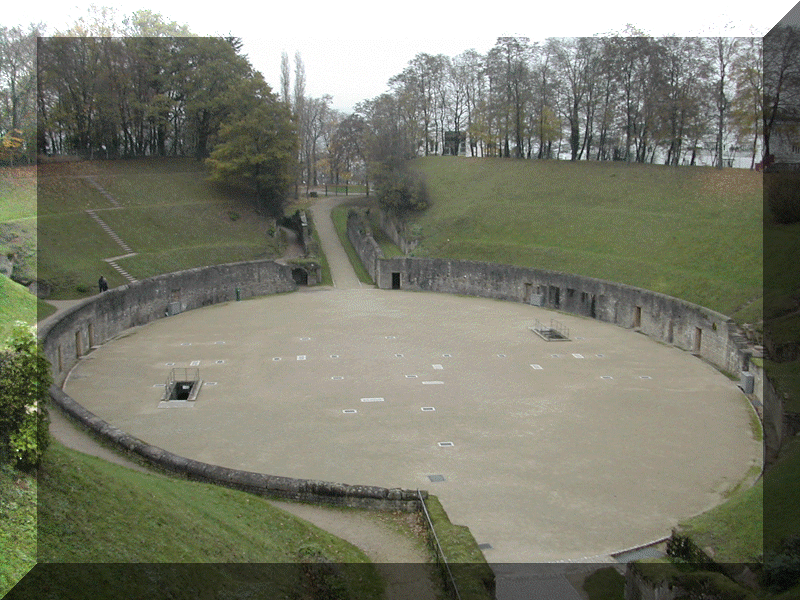 |
|
Astrology in Ancient Rome: Manipulating the Masses, Roman Style
Astrology infiltrated Rome as a result of its conquests
abroad, particularly Greece, but was certainly not welcomed with open
arms like some of their philosophies. It appears to me that most of
what Rome ever accomplished other than building various architectural
marvels was to conquer vast areas and then proceed to either destroy or
steal the scientific and intellectual developments indigenous to those
regions. Roman leaders were ruthless and would accomplish their ends by
whatever means necessary. Dominated for centuries by blatant egotists,
they were naturally hostile or at least demeaning toward outsiders,
including astrologers. This was in part due to the fact that the higher
echelons, many of whom were already skeptics due to embracing Platonism,
were further reinforced by Cicero’s delight in pointing out inaccurate
predictions by the Chaldeans to their military leaders.[1]
Furthermore, as far back as 200 BCE the poet, Ennius, a satirist who was
also no fan of astrology, wrote a volume of disparaging material which
was quoted by Cicero. In fact, the Romans became so adept at
disparaging astrology that critics in modern times use many of the same
arguments propagated a century or more BCE.[2]
Some things never change. However, astrology’s durability prevails,
even to the present time, regardless of how much criticism it receives.
Lurking behind Roman criticism was additional motivation, i.e., they considered it a foreign import to a society where intellectuals largely embraced “educated atheism,” an ideology which definitely didn’t include consulting the gods of heaven. It was also potentially threatening because, assuming it did work, 1) Even with their superior intellect, they hadn’t invented it; and 2) It was outside their control.[3] What it really boiled down to was the Roman aristocracy wanted to control the flow of ideas and anything so popular with the people at large was potentially dangerous. Thus, in 139 BCE astrologers as well as members of the cult of Zeus Sabazios, another undesirable alien belief, were expelled from Rome and Roman Italy.[4] However, astrologers either repeatedly snuck back in or never left as evidenced by the fact that between eight and thirteen decrees booting out astrologers were issued from the death of Julius Caesar in 44 BCE to Marcus Aurelius in 180 CE. Persistence pays, no doubt. And besides the fact that the population at large continued to embrace beliefs which included pagan deities, it appears that the less-enlightened ranks of the military were another vehicle which potentially brought astrology’s power to the ruling class. While Roman military leaders, without whose cunning the Roman Empire would not have existed, obviously garnered a lot of respect, clearly their strategic and tactical expertise didn’t exude from burying their nose in tablets expounding Platonism. Rather, the point of having a standing army is to gain power, making it intuitively obvious that they’re not worth the expense unless they win. Therefore to ensure their continued employment, generals and lesser officers would grab any advantage they could to assure victory. If officers are somewhat less than intellectuals, it’s not much of a stretch to consider their minions hailed from the ranks of ordinary citizens, those very people who continued to assure local astrologers and soothsayers didn’t go hungry.
The first example, it would appear, was less than a glowing recommendation, but additional evidence indicates that the bad press issued by political leaders was a ploy to discourage its use, much the same way as what the body politic tells us today is the direct opposite of the truth. When someone makes an unpopular statement the first thing they do is undermine that person’s credibility so that it appears they’re not wrapped too tight and thus not worth listening to. At some point, or perhaps continually, those at the top of the Roman political food chain were fully aware that astrology indeed could provide accurate predictions. Using simple logic, if it really didn’t work it doesn’t seem as if they would have given a rat’s ass whether or not the masses were using it; if that were the case, it would have simply been seen as a form of entertainment, much as ouija boards are seen today. However, to the contrary, we find that these taboos were issued in an attempt to keep what was covertly acknowledged as a powerful tool from the hands of not only the common people but potential competitors in a blatant show of “Do as I say, not as I do.” At least one future emperor had an early experience with astrology which convinced him that it worked. For example, the story is told that as a young man Augustus, with a friend, visited an astrologer known as Theogenes who acknowledged his imperial future by throwing himself at Augustus’ feet.[6] Of course, stories like this, true or otherwise, would also be useful for validating a leader with the common people, but Augustus demonstrated other behavior that indicated he was a believer by such acts as publishing his horoscope once he became emperor and minting coins bearing his Moon sign, Capricorn.[7] His
successor, Tiberius, who became emperor in 14 CE, was himself an
astrologer taught while in exile in Rhodes by the philosopher,
Thrasyllus, a master at his craft who also authored the astrological
textbook know as the Pinax, or “Table.”[8]
Tiberius’ disdain for incompetence was substantial enough that when a
potential court astrologer failed to perceive his own life was in danger
one of the future emperor’s lackeys would throw him into the sea below,
much like the bridge troll in Monty Python’s “Search for the Holy
Grail.” Nonetheless, Thrasyllus proved himself to be legitimate when
presented with this situation (unless he simply was aware how many
others had not returned from such an interview) and earned himself the
position of court astrologer, his acumen also proving to Tiberius that
the astrologer’s initial predictions of his imperial future were indeed
accurate and not a lucky guess.[9]
This indicates without a doubt that imperial Rome indeed embraced astrology but had no tolerance for charlatans. Tiberius was one of many who sent Roman astrologers packing in 16 CE, which would appear to be a rather hypocritical move, other than the fact that it came after the discovery that a potential competitor had consulted various astrologers regarding his chances at the throne who, when discovered, politely committed suicide. [10] Thrasyllus’ son, duly named Tiberius Claudius Balbillus, succeeded his father as court astrologer after his father died in 36 CE. Balbillus served Claudius, Nero and Vespasian and wrote a treatise addressing length of life known as “Astrologumena,” though he also moonlighted as a military engineer and possibly the prefect of Egypt from 54 – 59 CE.[11] One issue that arose at this time, perhaps trying to justify their actions of tossing out astrologers at the common level, was the question of who should be allowed to talk to God. Since Roman emperors, similar to Egyptian pharaohs, were pontifex maximum, the chief priest, once they recognized (or acknowledged) that astrology was a useful tool for acquiring hidden knowledge and various dubious advantages, it’s no wonder they wanted to limit it to their own use.[12] Emperors didn’t use such data as guidance in governing their domain as the ideal ruler like the Egyptian pharaohs; rather, the evidence for ruthless use of astrology for the purposes of political intrigue is extant. Anyone who thinks Roman emperors were benevolent or kind-hearted needs to remember that their preferred form of entertainment comprised throwing Christians to the lions. It was also never the sole means for making high level decisions as it was in Babylon, but rather competed with various other forms of divination. Today you are allowed to talk to God on your own. The list of
those who used astrology for devious purposes included Nero and various
family members; Nero’s successor, Galba; the rather degenerate general,
Vitellius and his challenger Vespasian; Vespasian’s son, Domitian who
had anyone murdered whose horoscope indicated imperial potential and
tried unsuccessfully to foil his own fate; Hadrian, a “good” emperor who
used astrology to select his successor that than killing them off;
Septimius Severus, who had his birth chart painted on the ceiling of his
palace but lacking the ascendant so it couldn’t be used against him; and
various others down to Constantine.[13]
Thus, examples abound of emperors using astrology to strengthen their
own positions and eliminate any competitors. But they didn’t stop
there. While Rome was still a republic the Sun was considered the supreme god which related to agricultural fertility and around the fifth century BCE the festival of Sol Indiges began. However, once it became an empire, the Sun was directly associated with the emperor and exploited in numerous ways, whether it was Augustus crediting Apollo with his victory at Actium or Nero who claimed the name Helios Basileus, explicitly compared his authority to the brilliance of the Sun and minted coins with an image of himself with a crown emitting sunbeams. Caligula and Commodus likewise assumed the veneration given to the Sun and Hadrian ordered the construction of the Pantheon, a temple dedicated to the seven planetary deities. Antoninus Pius in 158 CE conducted a dedication to Sol Invictus, the unconquered sun, which related to the victory of the Sun over the winter solstice.[14] Septimus Severus, who ruled between 193-211 CE, took things even further by calling himself Invictus and constructing a shrine to the seven planets known as “Septizonia” where it’s suggested he placed himself in the middle, like the Sun. Elagabalus, a.k.a. Heliogabalus, incorporated the Sun into his name, and Aurelian established Deus Sol Invictus, the Unconquered Sun, as Rome’s supreme deity with a feast day on the winter solstice, 25 December.[15] Needless to say, the Sun was not only the center of the solar system but the center of their government as well. Grandiose temples were constructed and public ceremonies conducted, their intent undoubtedly to invite if not demand public worship. Knowing how the masses fall easy prey to such behavior by egomaniacal individuals, demonstrated in modern times in such venues as rock concerts, emperors undoubtedly exploited this human tendency to gratify their own ego as well as assure their subjects remained obsequious. While this worked well for the masses, the emperor made sure he had all his bases covered by staking a claim with the Mithras sect as well, which was popular with Roman soldiers but also the philosophical elite. Their primary iconography comprised an event known as the Tauroctony in which Mithras was shown killing a bull represented by Taurus which also bore shades of the killing of the Cretan Minotaur. Numerous constellations were noted, many not part of the zodiac, with Sagittarius through Aries ignored. Their ceremonies and rituals were conducted in secret in Mithraea, or temples which resembled caves.[16] While sometimes associated with Orion, Mithras is usually linked to the Sun. This cult and its mysteries gained a level of protection from Marcus Aurelius (161 – 180 CE) whose son, Commodus, had become an initiate.[17] The imperial throne’s interest was further reinforced sometime later in 307 CE when the Emperors Diocletian, Galerius and Licinus jointly dedicated a major Mithraeum at Carnuntium.
Roman emperors were bloodthirsty and ruthless in attaining their goals by whatever means necessary. This included using astrology as well as other methods of divination, which they attempted to limit exclusively to themselves, which proved to be a losing battle. Nonetheless, the utilized astrology to identify and eliminate competition as well as wage battles which were obviously successful, given the vast boundaries of the Roman Empire. By further injecting their persona in a religious context as the personification of god on Earth, they further controlled their subjects in a more emotional way assuring adoration at an even deeper level. And if all else failed, they threw them to the lions and called it sport. [1] Campion, Nicholas, The History of Western Astrology Vol. I, p. 227. [2] Campion, p. 229 [3] Campion, p. 228 [4] Campion, p. 229 [5] Campion, p. 229. [6] Campion, p. 233. [7] Campion, p. 233. [8] Campion, p. 234. [9] Campion, p. 235. [10] Campion, pp 235-236. [11] Campion p. 235. [12] Campion, p. 241. [13] Campion, pp 241-242 [14] Campion, pp 258 – 259. [15] Campion, p. 259. [16] Campion p. 258. [17] Campion, p. 258 [18] Campion, p. 259. |
 [NOTE:--Click
on pictures to view captions.]
[NOTE:--Click
on pictures to view captions.] Evidence
for military use dating to 87 BCE was provided by Roman generals Gaius
Marius and Lucius Cornelius Cinna when the corpse of their opponent,
Gnaius Octavius, was found with “the astrologic diagram that had lured
him to his death” and Sulla, who had occupied Athens, consulted an
astrologer who forecasted his death, which he took seriously enough to
complete his memoirs prior to his expected demise.
Evidence
for military use dating to 87 BCE was provided by Roman generals Gaius
Marius and Lucius Cornelius Cinna when the corpse of their opponent,
Gnaius Octavius, was found with “the astrologic diagram that had lured
him to his death” and Sulla, who had occupied Athens, consulted an
astrologer who forecasted his death, which he took seriously enough to
complete his memoirs prior to his expected demise.

 The
imperial emphasis on the Sun thus had implications for both such that
Sol Invictus and Mithras-as-Helios tended to be blended together as an
“ornament of imperial power” which allowed the emperor’s influence at a
religious level to invade both groups and thus reach the vast majority
of citizens through one vehicle or the other.
The
imperial emphasis on the Sun thus had implications for both such that
Sol Invictus and Mithras-as-Helios tended to be blended together as an
“ornament of imperial power” which allowed the emperor’s influence at a
religious level to invade both groups and thus reach the vast majority
of citizens through one vehicle or the other.